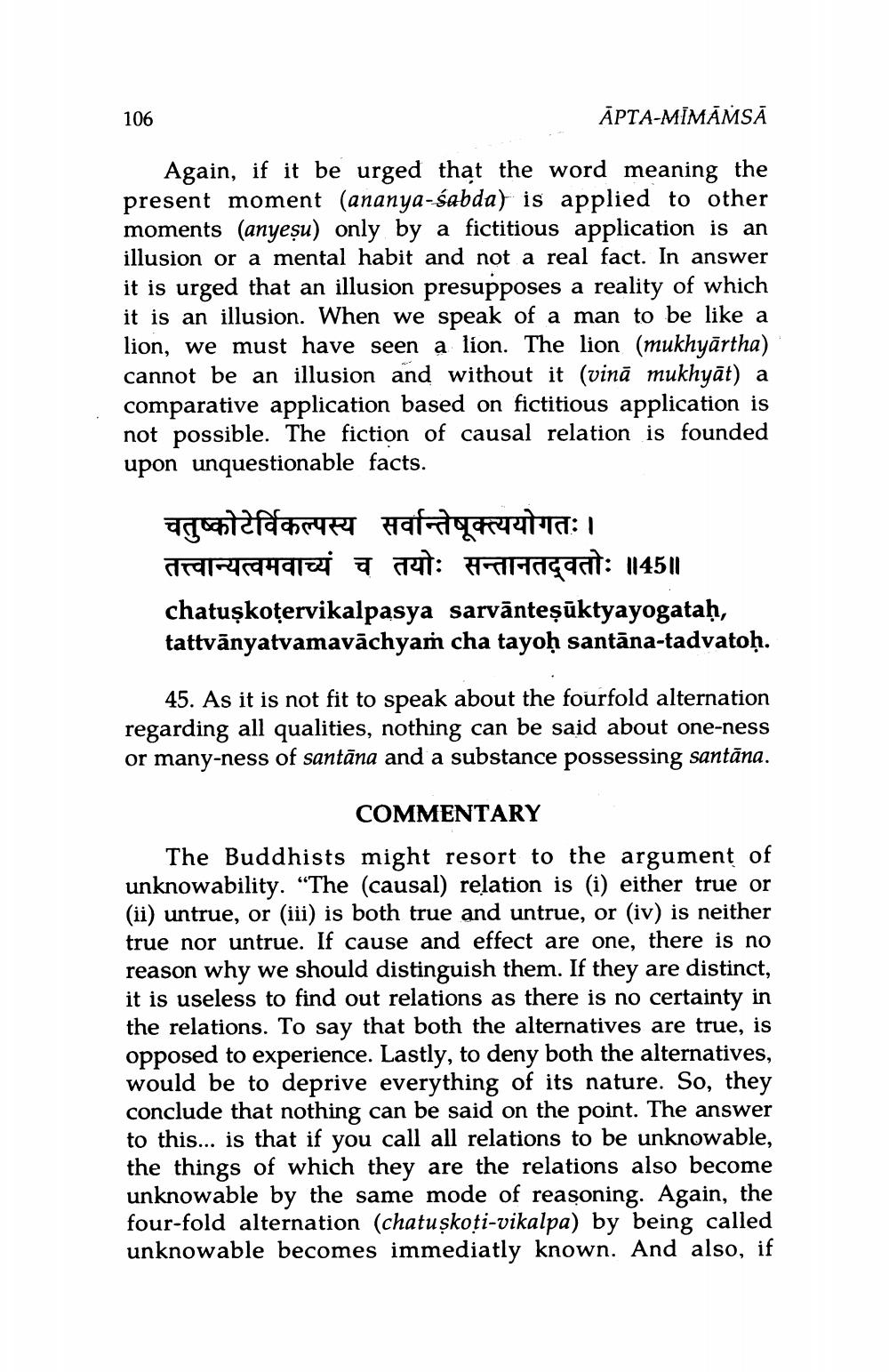________________
106
ĀPTA-MĪMĀSĀ
Again, if it be urged that the word meaning the present moment (ananya-sabda) is applied to other moments (anyeșu) only by a fictitious application is an illusion or a mental habit and not a real fact. In answer it is urged that an illusion presupposes a reality of which it is an illusion. When we speak of a man to be like a lion, we must have seen a lion. The lion (mukhyārtha) cannot be an illusion and without it (vinā mukhyāt) a comparative application based on fictitious application is not possible. The fiction of causal relation is founded upon unquestionable facts.
चतुष्कोटेर्विकल्पस्य सर्वान्तेषूक्त्ययोगतः। तत्त्वान्यत्वमवाच्यं च तयोः सन्तानतद्वतोः ॥45॥ chatuşkotervikalpasya sarvānteşūktyayogataḥ, tattvānyatvamavāchyam cha tayoḥ santāna-tadvatoḥ.
45. As it is not fit to speak about the fourfold alternation regarding all qualities, nothing can be said about one-ness or many-ness of santāna and a substance possessing santāna.
COMMENTARY The Buddhists might resort to the argument of unknowability. “The (causal) relation is (i) either true or (ii) untrue, or (iii) is both true and untrue, or (iv) is neither true nor untrue. If cause and effect are one, there is no reason why we should distinguish them. If they are distinct, it is useless to find out relations as there is no certainty in the relations. To say that both the alternatives are true, is opposed to experience. Lastly, to deny both the alternatives, would be to deprive everything of its nature. So, they conclude that nothing can be said on the point. The answer to this... is that if you call all relations to be unknowable, the things of which they are the relations also become unknowable by the same mode of reasoning. Again, the four-fold alternation (chatuskoți-vikalpa) by being called unknowable becomes immediatly known. And also, if




